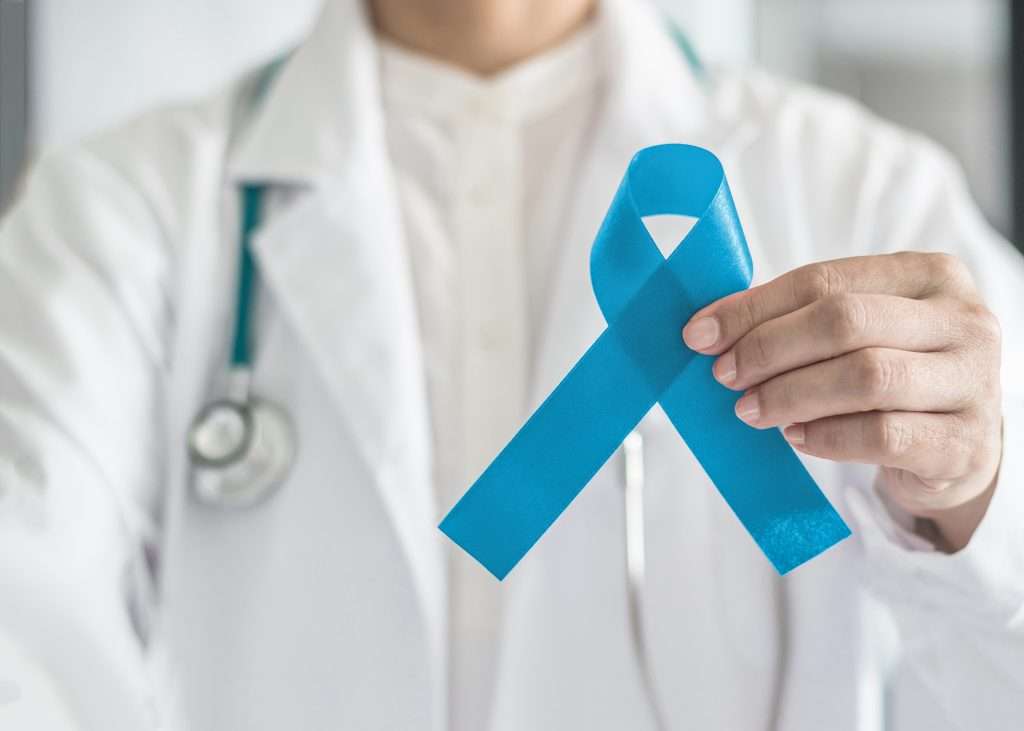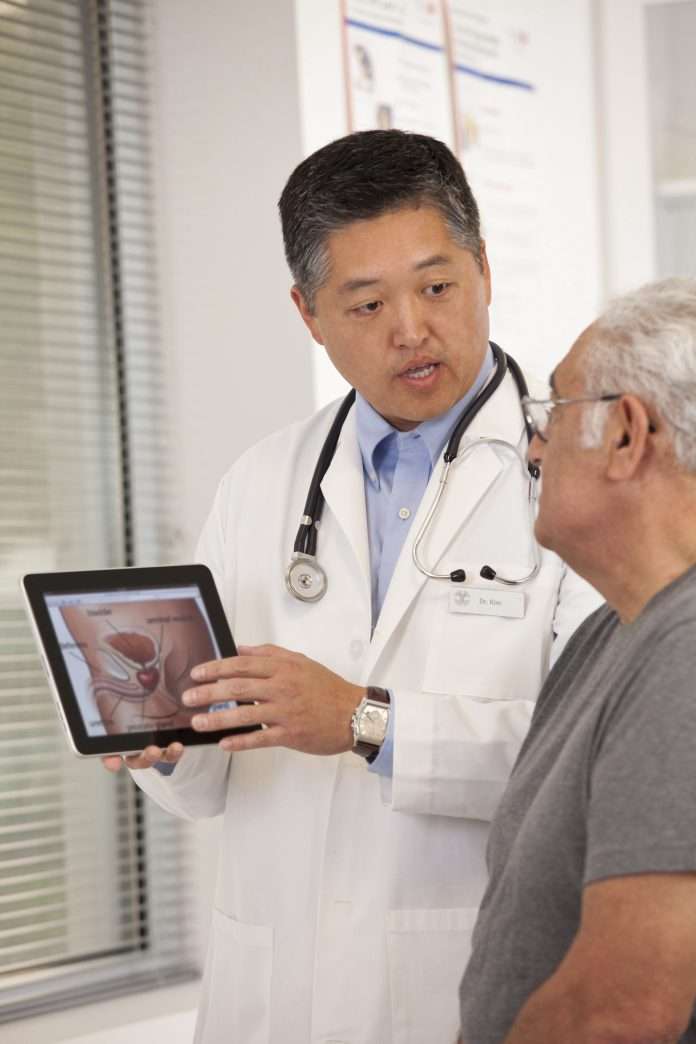Get to know the simple ways that you can stay a step ahead of this dangerous cancer. Dr. Casey Cochran, DO, provides some useful information.

What purpose does the prostate serve?
It’s out of sight and usually out of mind, but the prostate – the walnut-sized gland that sits between the bladder and the penis, in front of the rectum, in men – cannot be ignored. It produces a fluid that is important in male fertility, as well as another fluid that lubricates the spinal cord. In addition, urine passes through the urethra, which goes through the prostate. If there is an issue with the prostate, such as prostate cancer, it can affect a man’s health, self-image and lifestyle.
How common is prostate cancer?
Prostate cancer is one of the most common forms of cancer among men. According to the Centers for Disease Control and Prevention, 13 out of every 100 men will get prostate cancer in their lifetime, and on average three of those men will die because of it.
How do you get screened for prostate cancer?
Even if you aren’t experiencing symptoms, all men 55 to 69 years old should talk to their doctor about getting routinely screened. Men who are 70 and older generally can skip routine screenings.
Fortunately, prostate cancer can be detected early with simple testing, including a rectal exam by the physician or a prostate-specific antigen (PSA) test. This simple blood test is commonly used to measure the blood level of a protein (called PSA) that is created in the prostate. The test can be performed in the office by a primary care doctor or urologist. It’s recommended to get tested annually.

Is there a genetic component to prostate cancer?
African American men are more likely to be diagnosed with prostate cancer and twice as likely to die from it. Prostate cancer can also be triggered by genetic factors such as family health history. If one or more immediate family members have had prostate cancer, you should mention it to your doctor.
What are some symptoms of prostate cancer?
• Difficulty urinating
• Frequent urination
• Blood in urine or semen
• Painful or burning urination
• Trouble emptying bladder
• Painful ejaculation
• Pain in back, hips and/or pelvis
If you experience any of these symptoms, contact your physician immediately.
Are there ways to lower your risk of developing prostate cancer?
There are proven strategies and behaviors to lessen your risk of cancer in general. They include:
- Lower alcohol consumption (or stop altogether). Drinking alcohol increases your risk of several types of cancer. It also impacts your sleep, mental health, skin, energy levels and weight. Men are recommended to keep consumption to two drinks daily (one for women).
- Get moving. Around 40% of all cancers can be associated with being overweight or obese. Regular physical activity can improve your brain health, strengthen bones and muscles, improve your sleep, lower stress and even lower blood pressure, to name a few benefits.
- Protect yourself from the sun. Ultraviolet rays from the sun can be extremely harmful to your skin. Wear SPF, protective clothing/gear (hat, sleeves, sunglasses) and stay out of the direct sun when you can.
- Eat colorfully. In general, eating healthily allows your body to function at its best potential. Limiting sugar intake has a number of benefits. It reduces the risk of disease, lowers risk of depression and aids in weight management, and more. Fill your plate with brightly colored fruits and vegetables, and steer clear from overly processed snacks.
“Early detection of prostate cancer can lead to successful treatment,” added Dr. Cochran. “It’s best to detect prostate cancer through screening when there are no symptoms or when they are at an early stage, when it is highly treatable.”
You can take steps to stay healthy and live a long life for yourself and your family. We’re here to help!
Contact your doctor for a consultation or, for assistance finding a doctor who’s right for you, call 580-599-6391.

For language assistance, disability accommodations and the nondiscrimination notice, visit our website






